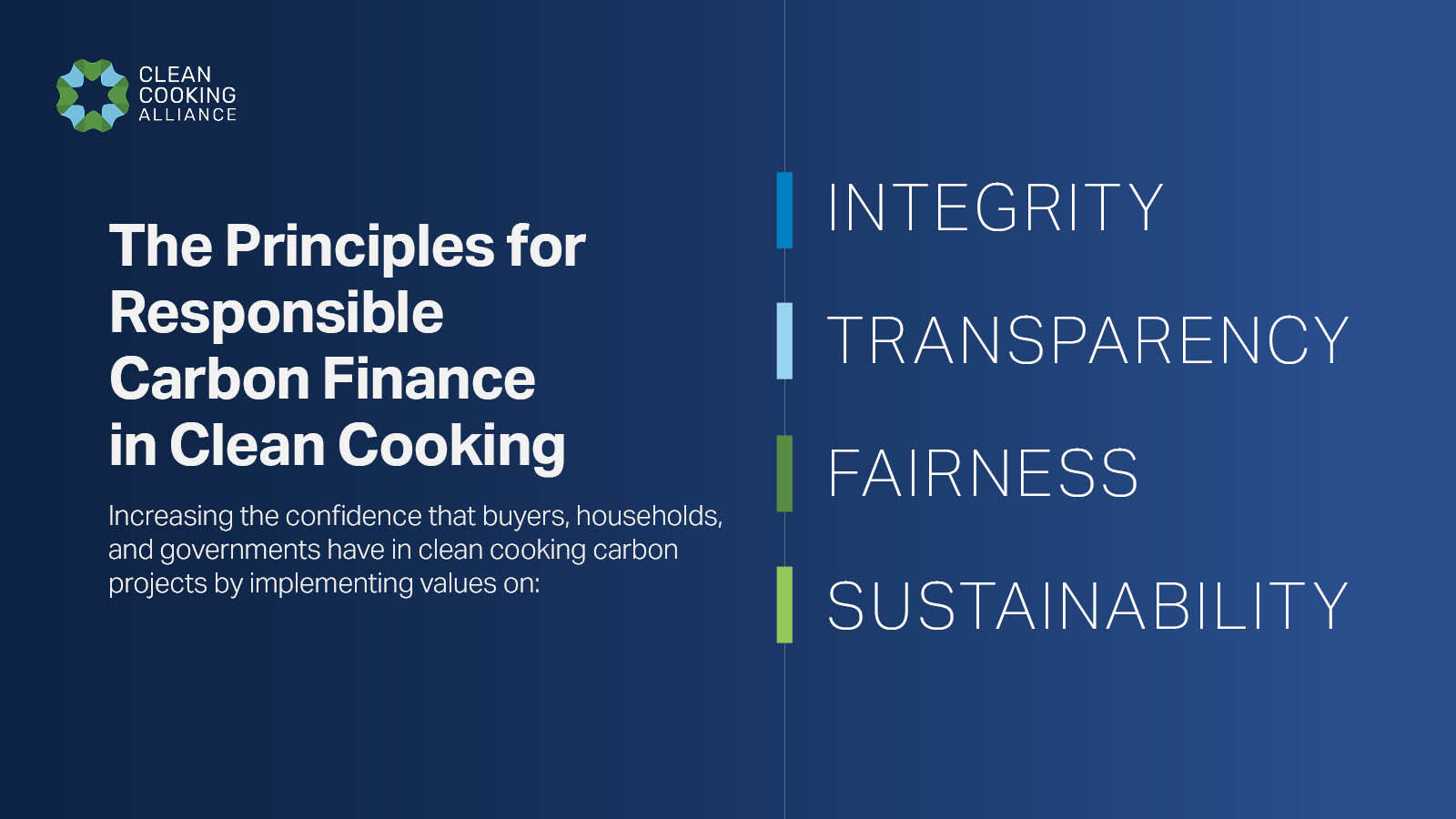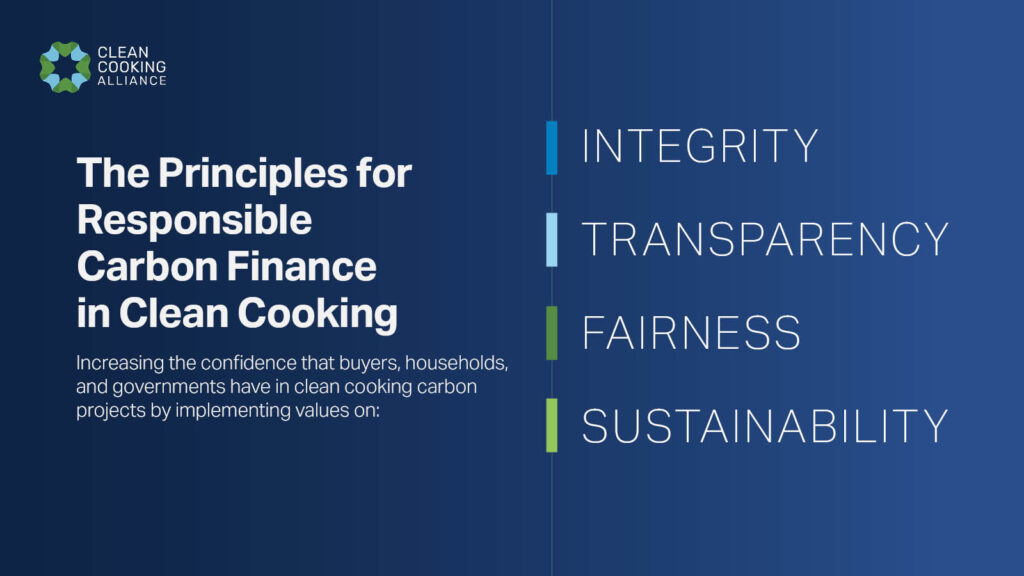Navigate this page
About
Carbon markets are a powerful tool to get more capital flowing to the underfunded clean cooking sector. However, carbon markets depend upon the reputational benefits that engaging in them offers to carbon credit buyers.
To help improve market norms, instill confidence in clean cooking carbon markets, and incentivize investment, CCA undertook the development of the Principles for Responsible Carbon Finance in Clean Cooking.
The Principles are the product of an extensive public process initiated by CCA in 2023, with input from hundreds of stakeholders engaged in climate finance and clean cooking. Beginning with a public consultation involving 359 stakeholders from 267 institutions, eight co-chairs approved a set of Interim Principles. This was followed by another public consultation, with all feedback being reviewed prior to a draft set of final Principles being submitted to the Advisory Council, a panel of 14 senior stakeholders convened by CCA and representing the many players in the clean cooking and carbon finance sectors. The Council endorsed the final Principles by majority consent.
If you’d like to join the 180+ organizations that have endorsed these Principles, please fill out this form. To see the Responsible Carbon Finance Advisory Council members and minutes of their meetings, click here. A thematic report with background information is available here.
By 2026, CCA aims to have a mixture of established, emerging, and new clean cooking project developers committed to a code of conduct that is recognized by end buyers of carbon credits as a hallmark of high quality. By 2030, CCA envisions a mature, flourishing clean cooking carbon market that operates with integrity, transparency, fairness and sustainability, where governments and buyers trust the quality of the emissions reductions and co-benefits from clean cooking carbon projects. This sustained demand for high quality credits will command premium pricing, facilitating the allocation of significant capital to clean cooking carbon projects.
The Principles for Responsible Carbon Finance in Clean Cooking
Integrity
Project claims should be evidence-based, case specific, and substantiated.
- Baselines are realistic, up-to-date, and geography-specific. Any assumptions made are transparent and substantiated.
- Fuel consumption or stove usage are accurately monitored. Any assumptions made are transparent and substantiated.
- Only sustainable development benefits that are substantiated and can be evidenced are claimed.
Transparency
Non-commercially sensitive information on clean and improved cooking carbon markets should be accessible.
- The monetary and/or non-monetary benefits reaching the project and technology/fuel users are transparent within a given transaction.
Fairness
Carbon projects solicit informed consent from users and share revenue fairly along clean and improved cooking value chains.
- Informed consent precedes each user’s participation in a carbon project.
- Carbon revenues are shared by all stakeholders in a way that is proportionate to the risk they assume and the value they create.
Sustainability
Carbon markets complement other forms of funding and do no long-term harm to local clean and improved cooking markets.
- Carbon finance, official development assistance, and philanthropic capital are complementary.
- The positive effects of carbon finance on clean and improved cooking markets are promoted, while excessive market distortions are avoided.
- National policies facilitate the development of clean and improved cooking carbon markets.
Process
CCA is leading a five-stage process, which will run from May 2023 to December 2030, as outlined below:
| Phase | Why is it important? | What is the main output? | When? |
Discover |
Confirming the key risks and issues facing clean cooking carbon markets will help to inform where the sector needs to improve if it is to improve carbon credit quality. | Thematic Report
The material issues facing clean cooking carbon projects were documented for dissemination. |
Completed: Q4 2023 |
|
Describe |
Creating a set of Principles that are material, transformational, clean cooking-specific, and operationalizable will lay the ground for a future Code of Conduct to emerge. | RCF Principles
An initial set of Interim Principles were released for public consultation. |
Completed: Q1 2024 |
Co-create |
Confirming the Principles and co-creating a Code of Conduct with Project Developers will help increase uptake. | Voluntary Code of Conduct
A Code of Conduct for project developers will be released and piloted. |
Ongoing: Q2 2024 – Q4 2024 |
Scale |
Increasing awareness of the Code of Conduct amongst end buyers will help them to find project developers that are taking extra steps to improve clean cooking project quality. | Code of Conduct Commitments
A list of Project Developers committing to the Code of Conduct will demonstrate traction. |
Q4 2024 – Q4 2025 |
Sustain |
Improving the levels of quality needed to be part of the Code of Conduct will create a ratchet for quality that keeps apace of the latest sector developments. | Code of Conduct Revisions
Future versions of the Code of Conduct will continue to be refined. |
2026 – 2030 |



